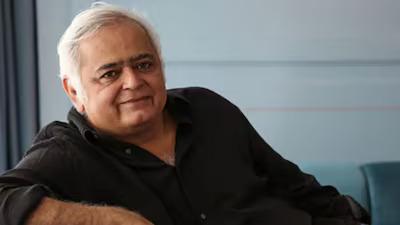
Appalled by Filth & Chaos: Hansal on Mumbai’s Infrastructure
Mumbai, the city of dreams, is often touted as the financial and entertainment capital of India. Home to the Indian film industry, the city is a hub of creativity and innovation. However, beneath the glitz and glamour, lies a stark reality – a city in shambles. The streets are dirty, the infrastructure is crumbling, and the residents seem apathetic to it all.
Filmmaker Hansal Mehta, known for his thought-provoking films like “CityLights” and “Aligarh”, has recently spoken out against the city’s deplorable condition. In an interview, he expressed his frustration and disappointment at the state of Mumbai, calling it a “filth and chaos” that is suffocating its residents.
Mehta’s words are a stark reminder of the plight of Mumbaikars, who are forced to navigate the city’s dirty streets, congested roads, and inadequate public transportation. The city’s infrastructure is in shambles, with crumbling roads, overflowing garbage, and dilapidated buildings. The air is thick with pollution, and the noise is deafening.
But what’s even more appalling is the collective indifference of its residents towards the city’s plight. Mehta’s criticism is not just directed at the authorities, but also at the citizens themselves. He believes that it’s time for Mumbaikars to take responsibility for their city and demand better from those in power.
“How long will we continue to live like this?” Mehta asked. “I still believe I love this city…But it’s strangled by those in power…They profit from its decay and dress it up as resilience.”
Mehta’s criticism is not unfounded. Mumbai is a city that is constantly growing and evolving, but its infrastructure is struggling to keep pace. The city’s population is projected to reach 20 million by 2025, but its public transportation system is woefully inadequate. The roads are congested, and the traffic is chaotic.
The city’s waste management system is also in shambles. Garbage is littered on the streets, and the air is thick with pollution. The city’s water supply is also unreliable, with many areas facing water scarcity.
Despite these challenges, Mehta still believes that there is hope for Mumbai. He believes that the city’s residents can make a difference by demanding better from those in power and taking small steps to improve their own surroundings.
“It’s not about revolutionizing the system overnight,” Mehta said. “It’s about taking small steps, making small changes, and creating a ripple effect. It’s about questioning the status quo and demanding better from those who are supposed to serve us.”
Mehta’s words are a call to action for Mumbaikars to take ownership of their city and demand better from those in power. It’s time for us to stop complaining about the state of the city and start taking small steps to improve it.
As Mehta said, “I still believe I love this city…But it’s strangled by those in power…They profit from its decay and dress it up as resilience.” It’s time for us to break free from this cycle of apathy and demand better for our city.
Sources:






